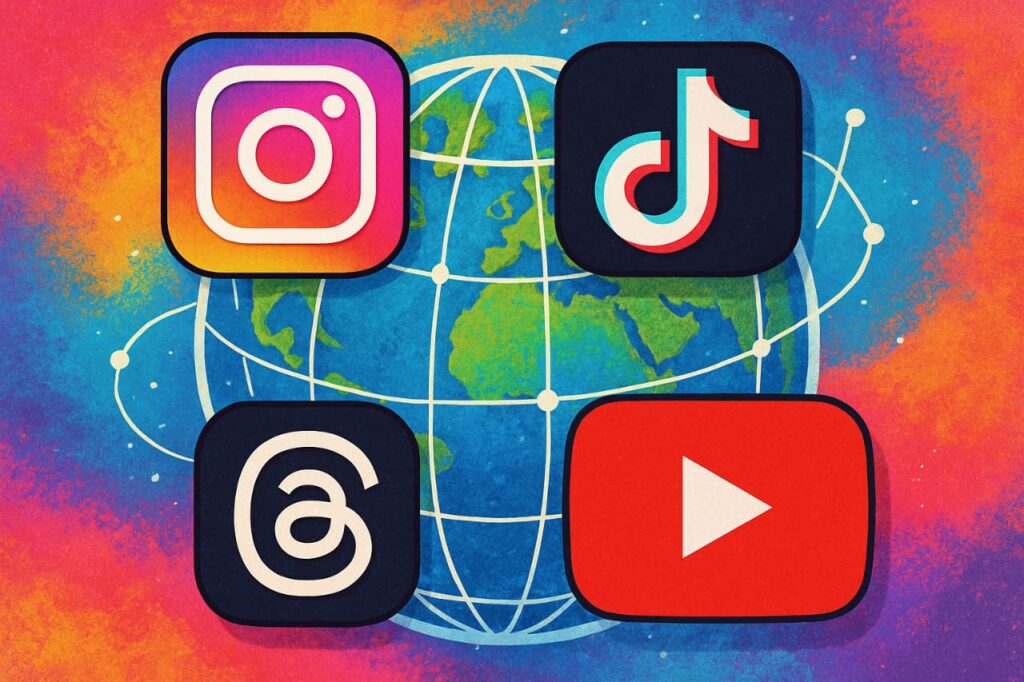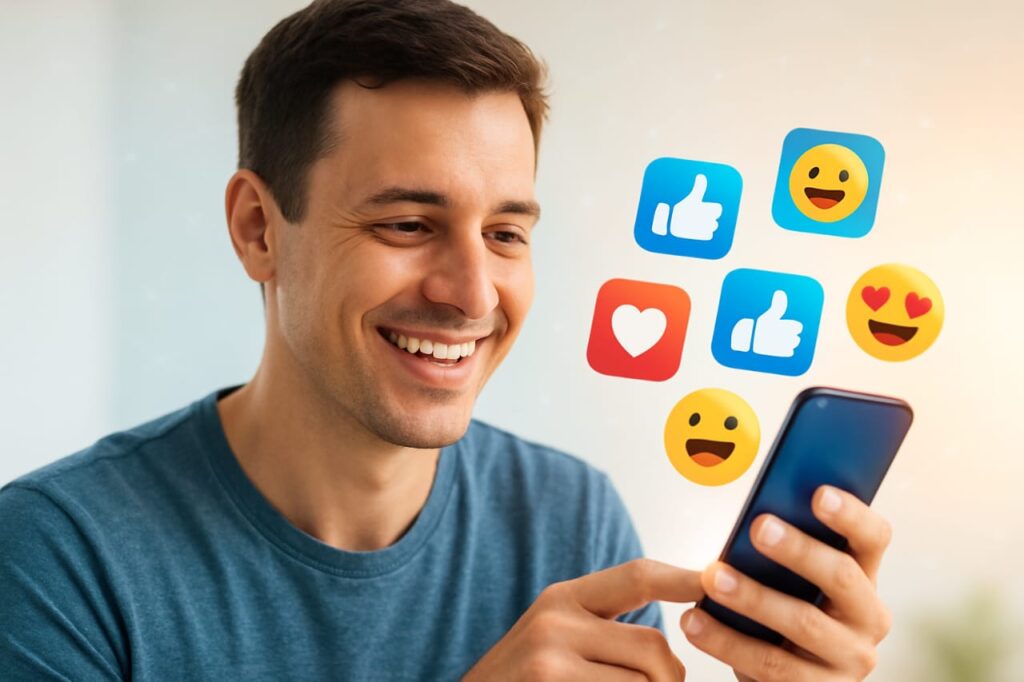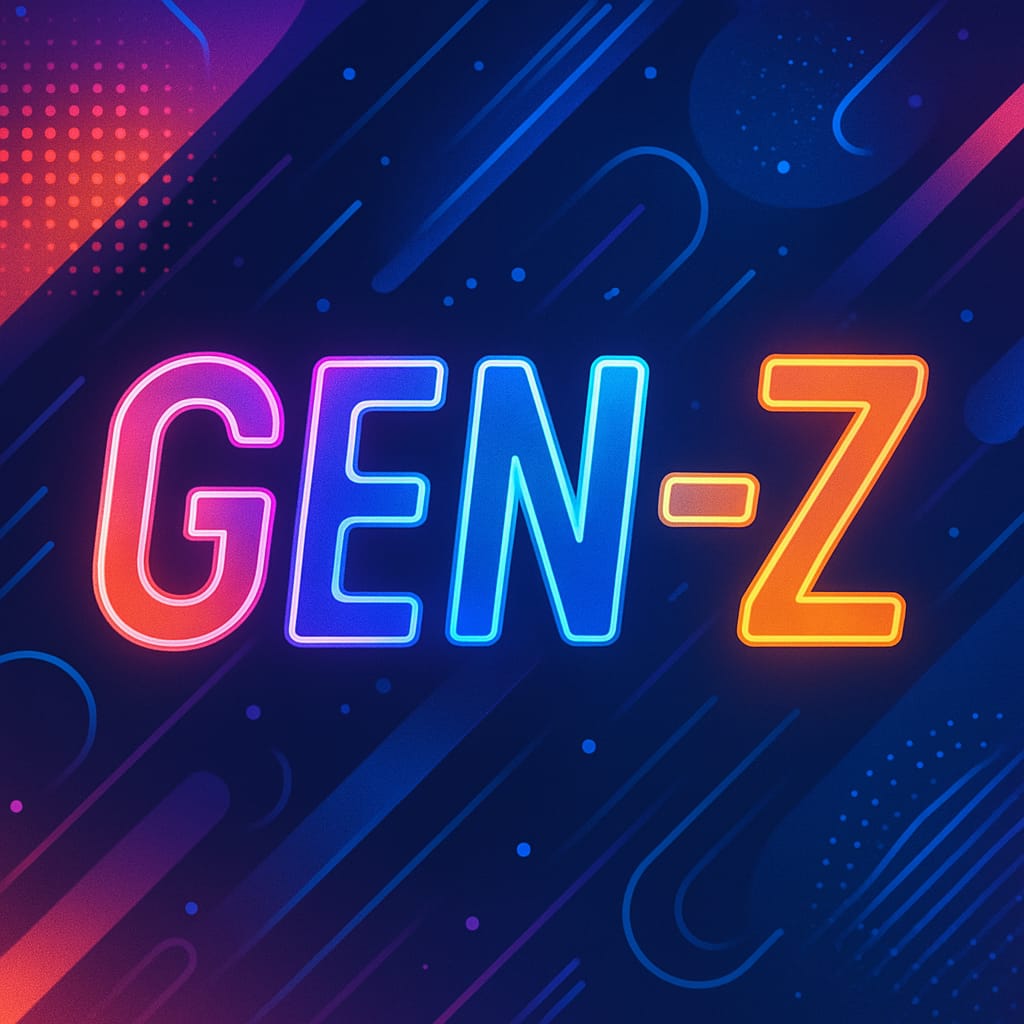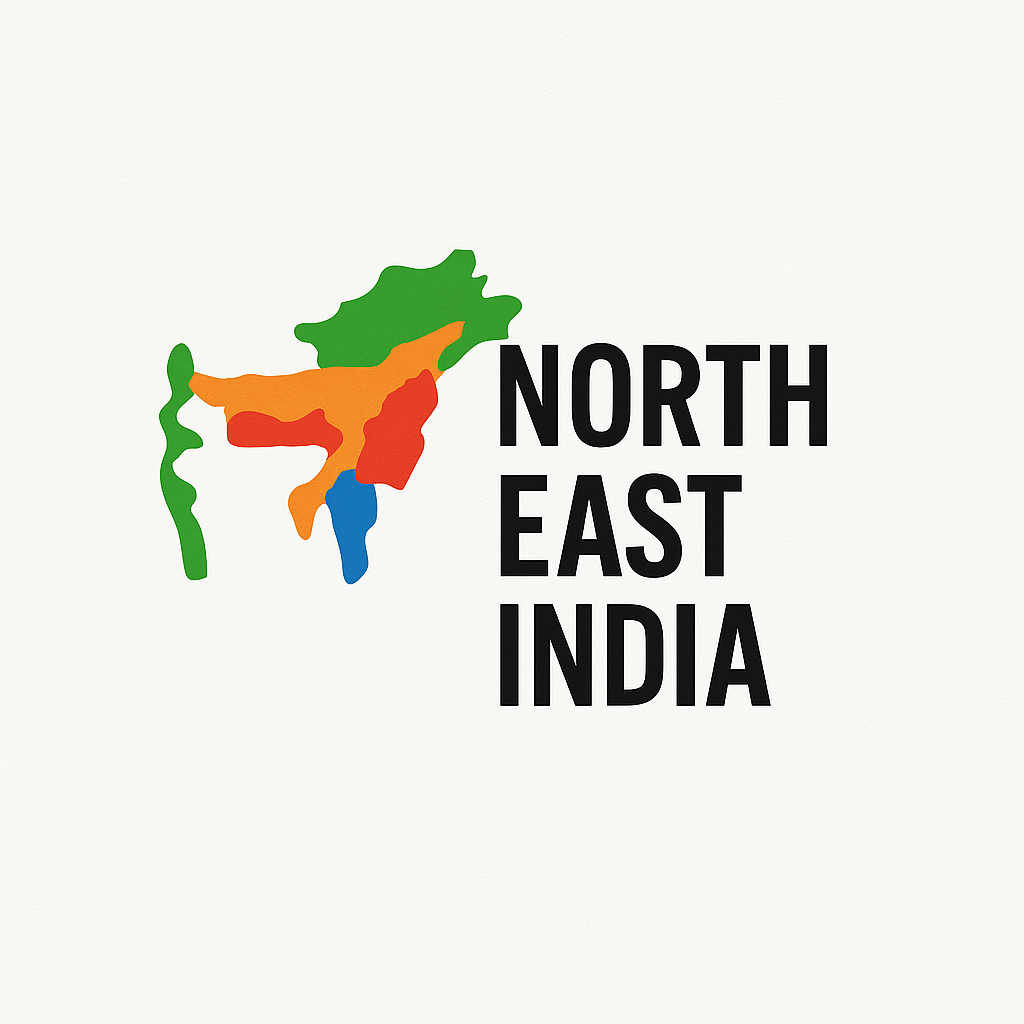
Introduction
In just over a decade, social media has redefined human interaction, creativity, and identity. From casual updates on Facebook to the curated perfection of Instagram, and now to TikTok’s viral chaos—social media & digital culture have evolved into forces that influence everything from fashion to politics.
But what exactly is this digital culture? Why is social media its driving engine? How does it shape our lives, values, and relationships? This blog will take you on a deep dive into how the social media & digital culture landscape is transforming the modern world—one post, reel, and tweet at a time.
What Is Digital Culture?
Digital culture refers to the ideas, behaviors, norms, and values that emerge through the use of digital technologies. It’s not just about being online—it’s about how we live, express, and relate in a tech-mediated world.
From emojis replacing words to cancel culture becoming a societal weapon, social media & digital culture are creating a new collective consciousness. Our identities, communities, and even moral standards are being shaped by platforms, algorithms, and influencer trends.
The Role of Social Media in Shaping Digital Culture
Social media is the virtual town square. Platforms like Instagram, YouTube, Twitter (X), Facebook, and TikTok are not merely entertainment outlets—they’re cultural powerhouses.
1. Speed of Information
Information spreads faster than ever. A political tweet or viral video can spark global protests or movements within hours. Social media has decentralized journalism, giving voice to the voiceless but also opening the gates for misinformation.
2. Identity Construction
Today’s youth grow up online. The curated self is now more important than the real self. People define their worth through likes, shares, and follower counts. Social media & digital culture have created digital identities—personas carefully crafted to fit trends, aesthetics, and audience preferences.
AI in 2025: Breakthroughs, Dangers, and What the Future Holds

3. Meme Culture
Memes aren’t just jokes—they’re micro-narratives of cultural expression. They shape opinions, mock politicians, challenge norms, and create digital communities. Meme culture is arguably one of the most defining elements of modern digital culture.
Cultural Trends Driven by Social Media
The digital world has given rise to powerful cultural shifts. Here are some major trends birthed by social media & digital culture:
1. Cancel Culture
One controversial tweet from the past? You’re “cancelled.” Cancel culture is a product of collective social media outrage, where users attempt to hold individuals and brands accountable—though sometimes at the cost of fairness and nuance.
2. Influencer Economy
Influencers are the new celebrities. Brands spend billions on influencer marketing because users trust faces more than ads. In this social media & digital culture era, personal branding is a full-time job and authenticity sells more than perfection.
3. FOMO & Comparison Culture
Seeing others’ highlight reels creates unrealistic standards. This “comparison trap” has been linked to anxiety, depression, and reduced self-esteem, especially among teenagers. FOMO—Fear of Missing Out—is a constant mental trigger in the digital age.
4. Virality and Short Attention Span
Content now thrives in 15-second snippets. TikTok, Reels, and Shorts have reprogrammed our brains. Content creators must hook viewers in 3 seconds or risk being swiped away. This impacts how news is consumed, how stories are told, and how attention is monetized.
Canva AI Instagram poster ✅ SEO Title (Repeat): Canva AI 2025: Complete Guide to Create Videos
Generational Impact of Social Media & Digital Culture
Each generation interacts with digital culture differently:
- Gen Z: Born with smartphones, they are the architects of viral culture. They thrive in trends, aesthetic movements (e.g., cottagecore), and digital activism.
- Millennials: Early adopters of social platforms, they often use social media for personal branding, professional growth, and nostalgia.
- Gen X & Boomers: While late to the scene, they’re increasingly active. However, they’re more prone to falling for misinformation and lack digital literacy.
The fusion of these generational perspectives makes social media & digital culture a complex, multilayered phenomenon.
Globalization of Digital Culture
Social media has made the world smaller. A trend that starts in Seoul or LA can go global in a day. K-pop, anime, dance challenges, and fashion trends spread like wildfire. Even language is evolving—“stan,” “ghosting,” “vibe”—these are global terms now.
Digital culture is no longer limited by geography. Thanks to platforms like YouTube and Instagram, creators from rural India or Brazil can go viral and influence millions. This democratization of culture is both empowering and challenging.
Why the Northeast Deserves More Attention in National Media
Positive Impacts of Social Media on Culture
Despite criticism, social media has brought several cultural benefits:
- Amplifying marginalized voices
- Providing platforms for self-expression and creativity
- Spreading awareness on social and environmental issues
- Facilitating education and skill-sharing
- Building global communities and support groups
The power of social media & digital culture lies in its reach and influence. It can educate, unite, and inspire change—if used responsibly.

The Downsides of Social Media & Digital Culture
1. Digital Addiction
Endless scrolling. Dopamine hits. Algorithmic triggers. Social media platforms are designed to be addictive. The average person now spends over 2.5 hours a day on social apps. This is not by accident—it’s by design.
Push notifications, infinite feeds, and reward loops are engineered to keep users hooked. It affects attention span, productivity, and even sleep.
2. Mental Health Crisis
Numerous studies now link heavy social media use to depression, anxiety, loneliness, and poor body image—especially among teens and young adults.
“We compare our behind-the-scenes to someone else’s highlight reel.”
This quote sums up why social media & digital culture can be psychologically harmful if not consumed mindfully.
3. Misinformation and Echo Chambers
Fake news spreads 6x faster than truth. Social platforms, guided by engagement algorithms, promote sensational and divisive content. This leads to:
- Polarization of opinions
- Radicalization of beliefs
- Conspiracy theory echo chambers
- Public distrust in institutions
A digitally connected society is only as informed as the content it consumes.
The Influence of Algorithms
Algorithms are the invisible hands behind digital culture. They decide:
- What content you see
- Which influencers rise
- Which opinions are amplified or suppressed
Social media & digital culture are no longer human-led—they’re machine-shaped. This has led to:
- Shadowbanning of minority voices
- Promotion of harmful trends (e.g., eating disorders, hate speech)
- Suppression of truth during political events or social movements
It’s essential to understand that we don’t just use social media—we are also being used by it.
The Rise of AI and Deepfake Culture
AI has become a double-edged sword. While it powers recommendation engines and filters, it also:
- Creates deepfake videos to spread misinformation
- Replaces human creativity with AI-generated content
- Raises ethical concerns about digital manipulation and identity theft
The next frontier of social media & digital culture may be synthetic influencers, AI-generated celebrities, and hyperreal simulations that blur the line between truth and fiction.
Visit Kaziranga National Park – The Kingdom of the One-Horned Rhino
Case Studies: Digital Culture in Action
1. #MeToo Movement
What began as a hashtag turned into a global movement, exposing sexual harassment and abuse. Social media was the catalyst that gave victims a collective voice.
2. Arab Spring
Twitter and Facebook played a massive role in mobilizing protests across the Middle East. This showed how digital culture can directly impact political regimes.
3. Cancel Culture: The James Charles Story
The beauty influencer lost millions of followers in days due to public allegations. This shows how social media & digital culture can make or break reputations instantly.
Digital Culture and Online Identity Crisis
1. Multiple Personas
People now maintain separate digital identities on different platforms—professional on LinkedIn, fun on Instagram, vocal on Twitter. But this fragmentation leads to confusion and emotional dissonance.
2. Validation Addiction
Likes, shares, and comments are modern validation tools. The need for online approval often outweighs real-life confidence.
3. Social Currency
Followers and blue ticks are the new social class. “Digital clout” defines access to opportunities, brands, and even relationships.
Digital Culture in the Future: Where Are We Headed?
Here’s what the future of social media & digital culture may look like:
- Metaverse Expansion: Users living, working, and socializing in virtual spaces.
- NFT-Driven Identity: Digital ownership defining status.
- AR/VR Realities: Hybrid digital-physical culture.
- Increased Regulation: Governments setting stricter digital boundaries.
- Digital Minimalism: Rise of slow content and conscious social use.
How to Navigate This Digital Culture Responsibly
- Set Screen Time Limits
- Unfollow toxic accounts
- Fact-check before sharing
- Be mindful of digital footprints
- Prioritize offline relationships
- Use social media as a tool—not an identity
Final Thoughts
Social media & digital culture are not inherently good or bad—they’re reflections of us. As users, we must shape this ecosystem with awareness, empathy, and ethics. We’re not just scrolling through culture anymore—we’re building it, every single day.
